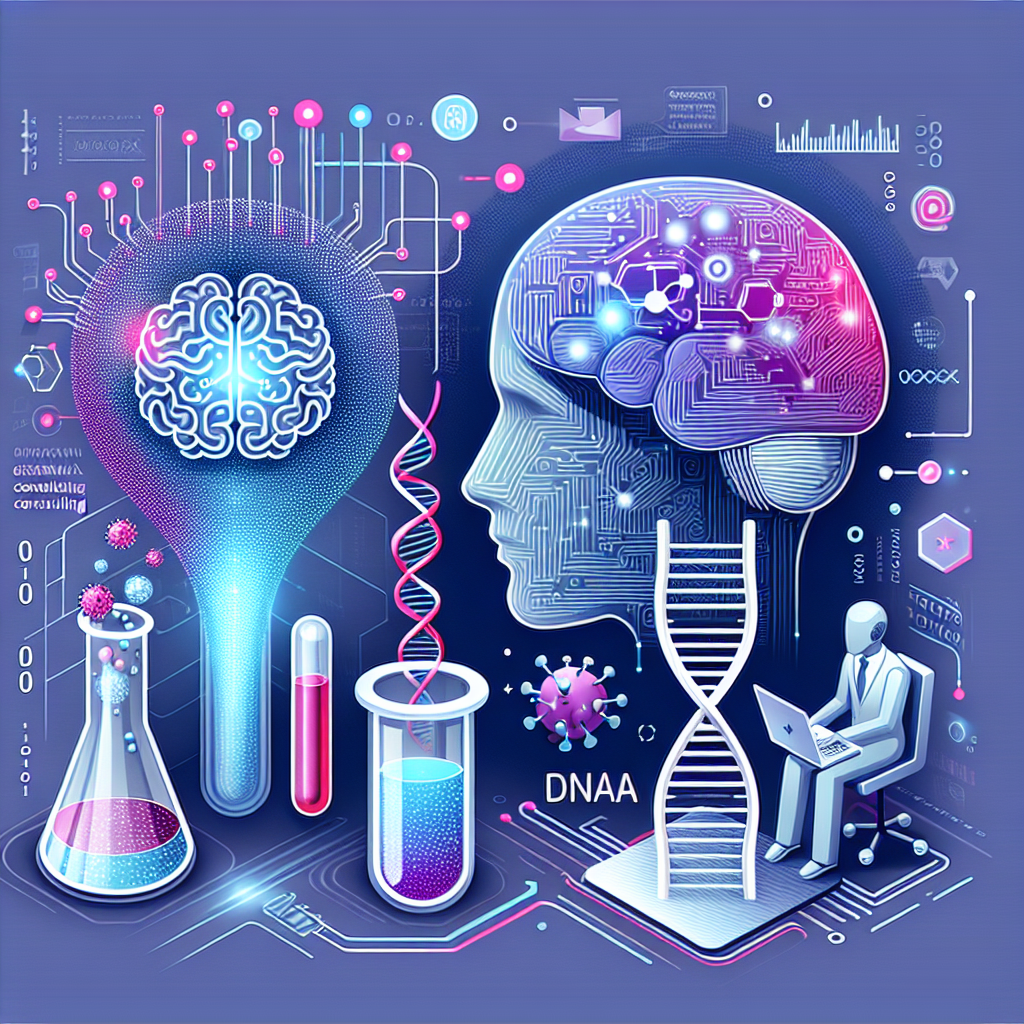Artificial intelligence (AI) has revolutionized many industries, and biotech research is no exception. AI consulting has become an integral part of biotech research, transforming the way scientists analyze data, discover new drugs, and develop innovative therapies. In this article, we will explore the role of AI consulting in biotech research, its benefits, and some frequently asked questions about this emerging field.
The Role of AI Consulting in Biotech Research
AI consulting in biotech research involves the use of advanced algorithms and machine learning techniques to analyze large datasets, identify patterns, and make predictions. By leveraging AI tools, biotech companies can accelerate the drug discovery process, improve the efficiency of clinical trials, and develop personalized treatments for patients.
One of the key roles of AI consulting in biotech research is drug discovery. Traditionally, drug discovery is a time-consuming and costly process that involves screening thousands of compounds to identify potential drug candidates. AI algorithms can analyze vast amounts of biological and chemical data to predict the efficacy of a drug candidate, speed up the identification of potential targets, and optimize the drug development process.
AI consulting also plays a crucial role in personalized medicine. By analyzing genomic and clinical data, AI algorithms can identify biomarkers that can predict a patient’s response to a particular treatment. This enables healthcare providers to offer personalized treatments tailored to the individual patient’s genetic makeup, leading to better outcomes and fewer side effects.
Furthermore, AI consulting in biotech research can help improve the efficiency of clinical trials. By analyzing patient data and predicting patient outcomes, AI algorithms can help researchers design more effective clinical trials, identify the right patient population, and optimize the dosage and treatment regimen. This can lead to faster drug approvals, lower development costs, and better patient outcomes.
The benefits of AI consulting in biotech research are numerous. By leveraging AI tools, biotech companies can accelerate the drug discovery process, reduce development costs, and improve the efficiency of clinical trials. AI algorithms can also help researchers identify new drug targets, predict patient outcomes, and develop personalized treatments. Overall, AI consulting has the potential to revolutionize biotech research and improve patient care.
Frequently Asked Questions about AI Consulting in Biotech Research
1. What is AI consulting in biotech research?
AI consulting in biotech research involves the use of advanced algorithms and machine learning techniques to analyze large datasets, identify patterns, and make predictions. By leveraging AI tools, biotech companies can accelerate the drug discovery process, improve the efficiency of clinical trials, and develop personalized treatments for patients.
2. How does AI consulting help in drug discovery?
AI consulting helps in drug discovery by analyzing vast amounts of biological and chemical data to predict the efficacy of a drug candidate, speed up the identification of potential targets, and optimize the drug development process. By leveraging AI tools, biotech companies can identify new drug targets, predict patient outcomes, and develop personalized treatments.
3. What are the benefits of AI consulting in biotech research?
The benefits of AI consulting in biotech research are numerous. By leveraging AI tools, biotech companies can accelerate the drug discovery process, reduce development costs, and improve the efficiency of clinical trials. AI algorithms can also help researchers identify new drug targets, predict patient outcomes, and develop personalized treatments.
4. How can AI consulting improve the efficiency of clinical trials?
AI consulting can improve the efficiency of clinical trials by analyzing patient data and predicting patient outcomes. By leveraging AI tools, researchers can design more effective clinical trials, identify the right patient population, and optimize the dosage and treatment regimen. This can lead to faster drug approvals, lower development costs, and better patient outcomes.
In conclusion, AI consulting has become an integral part of biotech research, revolutionizing the way scientists analyze data, discover new drugs, and develop innovative therapies. By leveraging AI tools, biotech companies can accelerate the drug discovery process, improve the efficiency of clinical trials, and develop personalized treatments for patients. The potential of AI consulting in biotech research is vast, and it is poised to revolutionize the field in the coming years.

